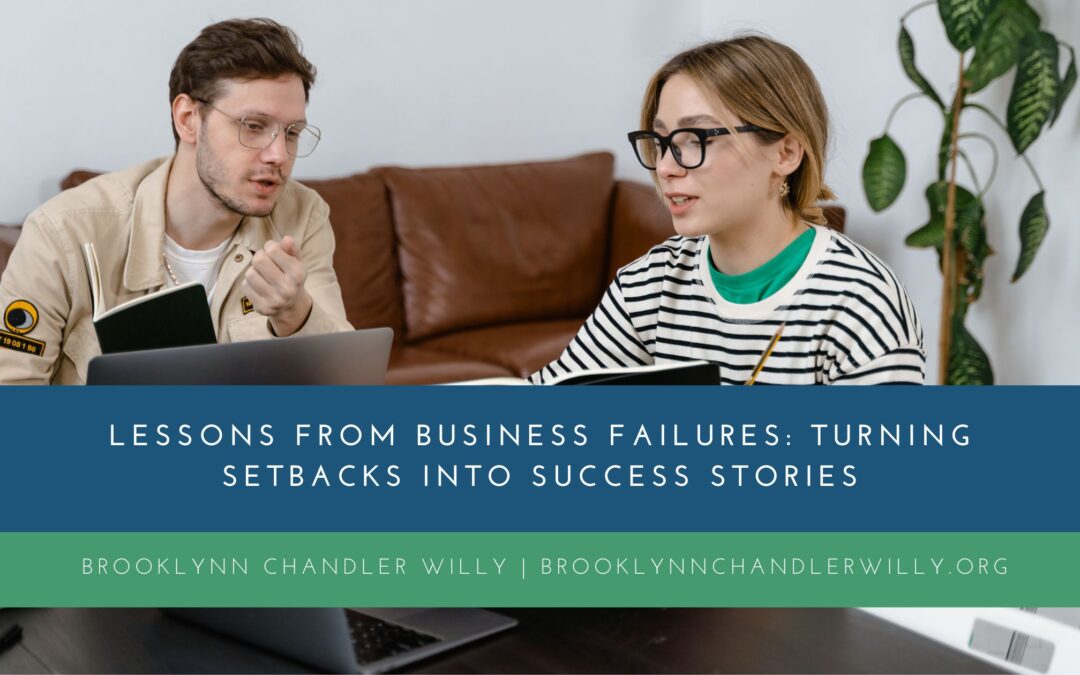When building entrepreneurship, setbacks and failures are inevitable. While success is the ultimate goal, the lessons learned from failure often pave the way for future triumphs. As the saying goes, “fall seven times, stand up eight.” This sentiment holds true in the business world, and many successful entrepreneurs have emerged from the ashes of their failed ventures armed with invaluable insights.
1. Embracing Failure as a Learning Opportunity
One of the most significant lessons from business failures is embracing them as valuable learning opportunities. Failure provides a unique lens through which entrepreneurs can assess what went wrong, identify weaknesses, and gain insights into areas that need improvement. Instead of viewing failure as the end of the road, successful entrepreneurs use it as a stepping stone toward growth and development.
Take the case of Steve Jobs, who faced failure when he was ousted from Apple, the company he co-founded. Rather than succumbing to defeat, Jobs used this setback to explore new avenues. He founded NeXT Computer and Pixar, ultimately returning to Apple with fresh perspectives that led to the creation of revolutionary products like the iPhone and iPad.
2. Building Resilience and Perseverance
Failure tests an entrepreneur’s resilience and perseverance. Those who weather the storm, pick themselves up, and continue pursuing their goals, often achieve lasting success. J.K. Rowling, the author of the Harry Potter series, faced numerous rejections before finding a publisher for her iconic books. Her perseverance through adversity led to the creation of a global phenomenon and serves as a testament to the power of persistence.
Resilience is not just about bouncing back from failure; it’s also about adapting and evolving in the face of challenges. Successful entrepreneurs understand that setbacks are not the end but a temporary pause in their journey.
3. Iterating and Adapting Strategies
Failure often highlights the need for strategic reassessment. Successful entrepreneurs are fearless in iterating on their ideas, products, or business models. They analyze what worked and what didn’t, seeking ways to refine and improve their approach.
Consider the story of Reed Hastings, the co-founder of Netflix. Before becoming the streaming giant we know today, Netflix started as a DVD-by-mail service. When faced with declining DVD sales and a changing market landscape, Hastings pivoted the business to focus on streaming. This bold move transformed Netflix into an industry leader, showcasing the importance of adapting strategies in response to changing circumstances.
4. Cultivating a Growth Mindset
A growth mindset is fundamental among entrepreneurs who turn failures into success stories. Carol Dweck’s concept of a growth mindset emphasizes the belief that someone can develop abilities and intelligence through dedication and hard work. Entrepreneurs with a growth mindset view failure not as a reflection of their capabilities but as an opportunity to improve and grow.
Elon Musk, the founder of Tesla and SpaceX, exemplifies a growth mindset. Despite facing numerous challenges and setbacks, Musk remains committed to pushing the boundaries of technology. His unwavering belief in the possibility of positive change and continuous improvement has fueled the success of his ventures.
5. Seeking Mentorship and Learning from Others
Successful entrepreneurs understand the value of seeking guidance from experienced mentors. Learning from the mistakes and triumphs of others can provide invaluable insights and shortcuts to success. Mentorship offers a support system during tough times and a source of wisdom to navigate complex business landscapes.
Bill Gates, the co-founder of Microsoft, attributes much of his success to the guidance of his mentor, Warren Buffett. The lessons Gates learned from Buffett, including the importance of focus and long-term thinking, played a crucial role in the growth of Microsoft into a technology powerhouse.
The entrepreneurship journey is fraught with challenges, and setbacks are an inevitable part of the process. However, what distinguishes successful entrepreneurs is their ability to extract lessons from failure, cultivate resilience, iterate on strategies, embrace a growth mindset, and seek mentorship. Turning setbacks into success stories is about achieving financial triumph and personal and professional growth. In the ever-changing world of business, those who learn, adapt, and persevere are the ones who ultimately thrive.
DISCLOSURE
Investment advisory services offered through Queen B Advisors, LLC, a Registered Investment Advisor, which does business as (d/b/a) Texas Financial Advisory. Insurance products, tax preparation services, and estate planning services are offered through Texas Insurance Advisory, Texas Tax Advisory, and Texas Estate Advisory, respectively, all of which also do business as Texas Financial Advisory. Insurance products, tax preparation, and estate planning are offered separate from investment advisory services. Neither Queen B Advisors nor Texas Financial Advisory offer tax or legal advice.

